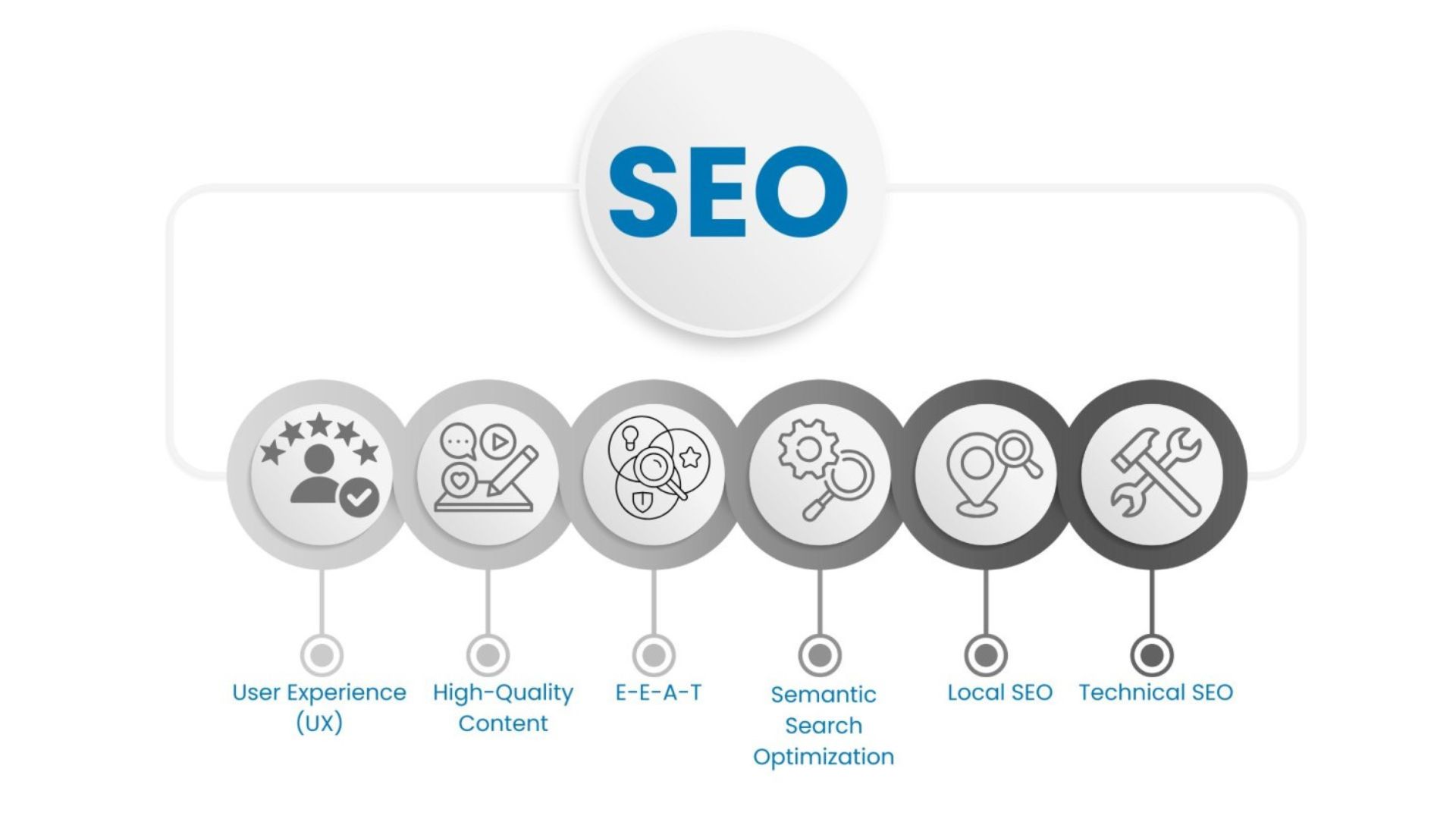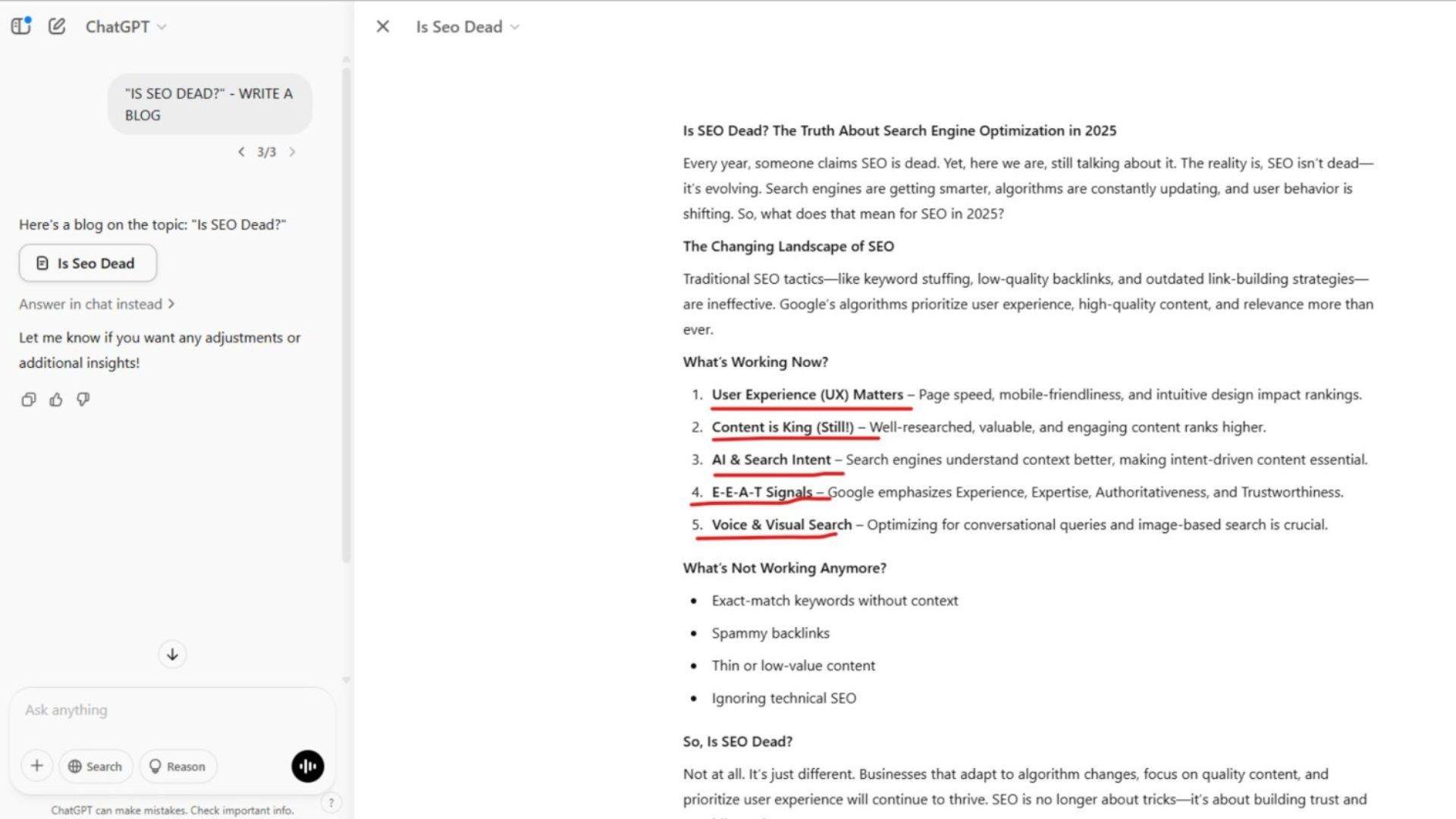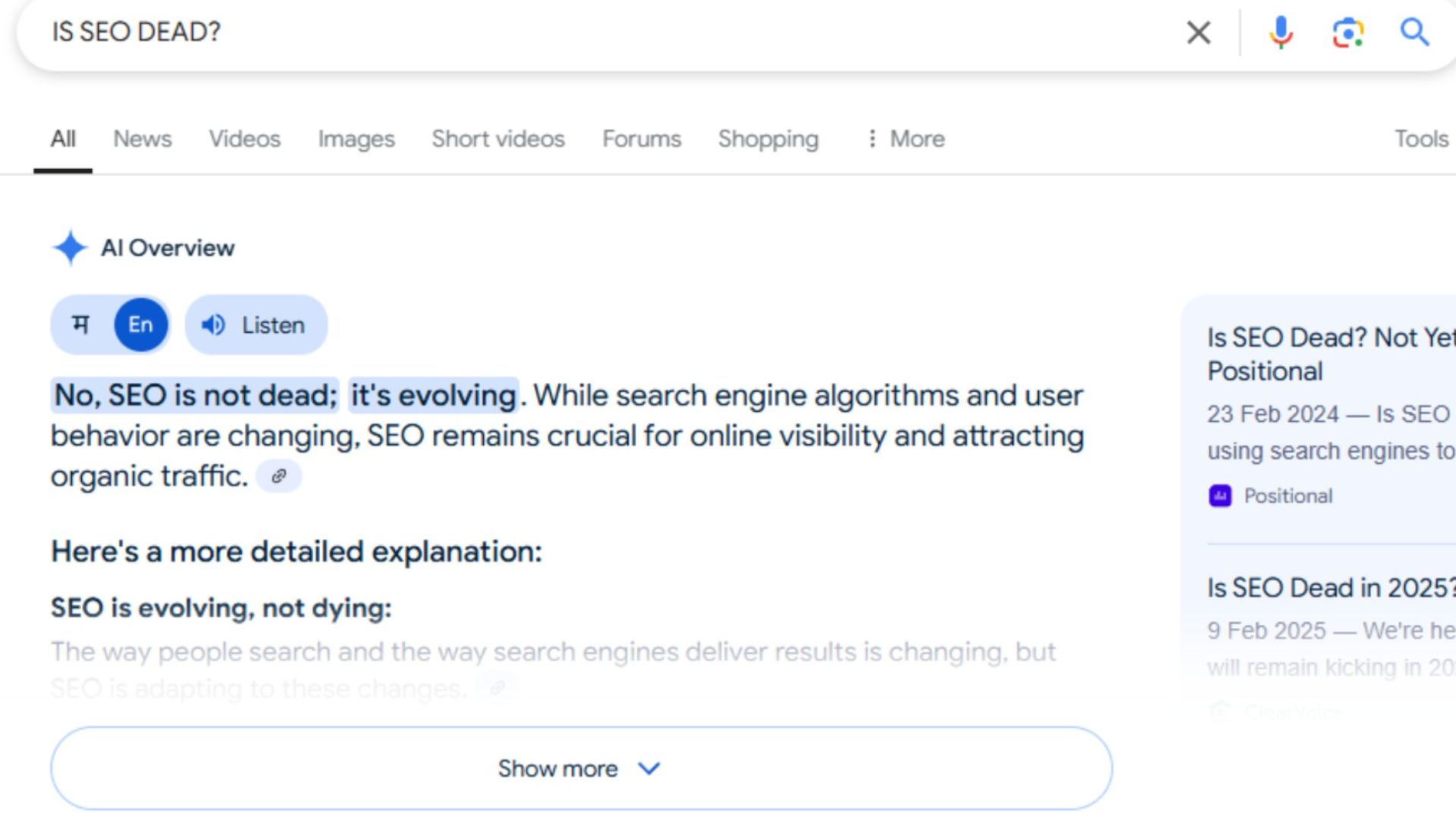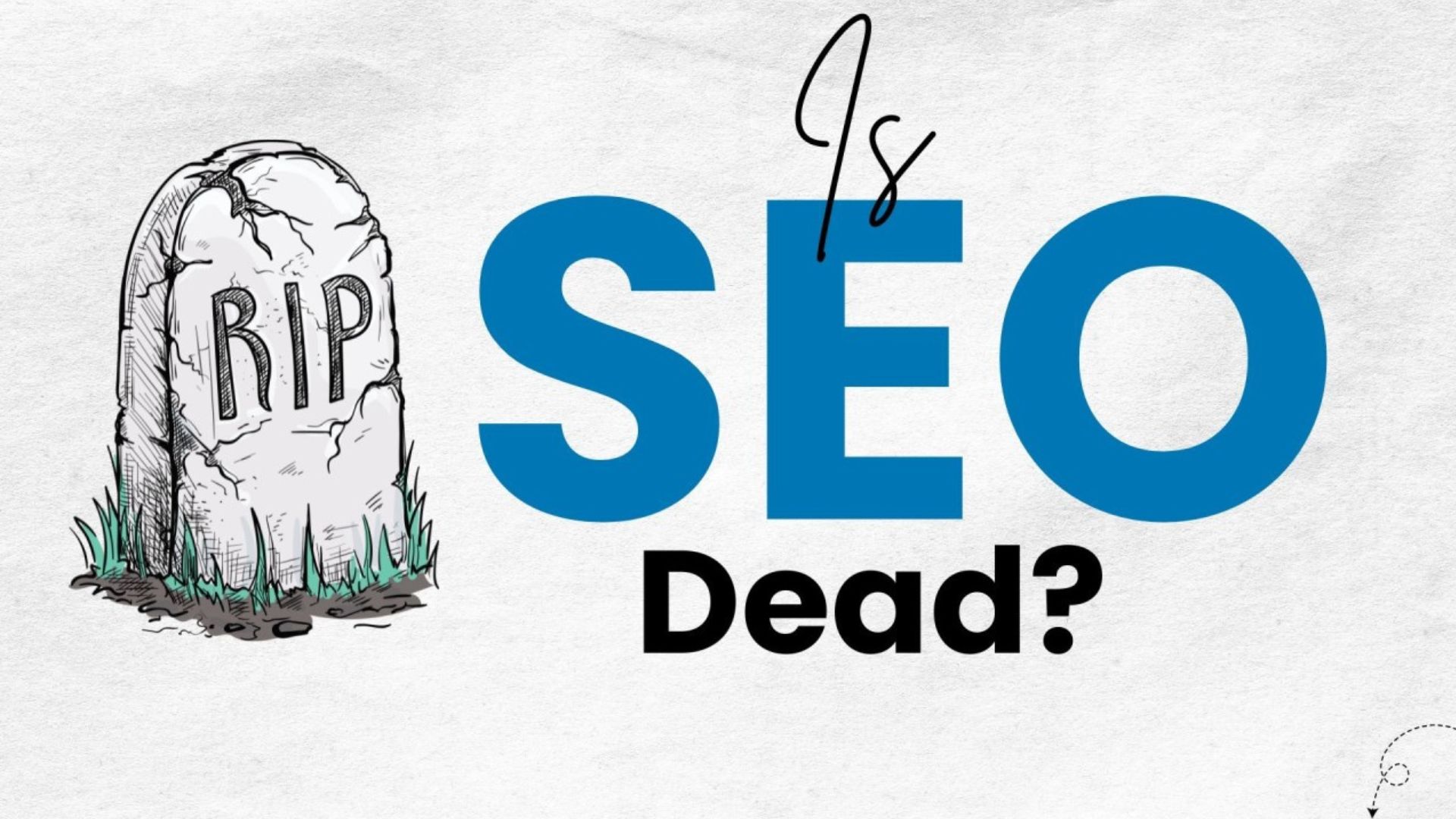The Myth: Is SEO Really Dead?
Every few years, the same question pops up: Is SEO dead? The short answer: no. The long answer: it’s evolving—and fast. Digital marketing never stands still, and SEO is no exception. It’s not disappearing, but it’s transforming into something far more sophisticated.
With AI advancements, smarter algorithms, and changing user behavior, SEO has moved beyond keyword stuffing. Today, it’s all about delivering relevance, authority, and a seamless user experience.
But here’s the twist: a new conversation is taking shape—the rise of AIO (AI Optimization) and AEO (Answer Engine Optimization). Are these the future? Will they replace SEO, or simply become its next evolution? Let’s break it down.
The Evolution of SEO
Why Do People Think SEO Is Dying?
Many marketers and business owners question whether SEO is still effective. This doubt usually comes from the massive changes in search algorithms, shifting user behavior, and the growing influence of AI-driven search. The belief that SEO is “dead” often stems from a few common misconceptions:
Google’s Constant Updates
Google frequently updates its algorithms, sometimes causing huge ranking fluctuations. When traffic drops overnight, people assume SEO has stopped working. In reality, Google is refining how it measures quality and relevance—not killing SEO.
Outdated Tactics No Longer Work
In the early days, keyword stuffing, exact-match domains, and bulk backlinks could secure top rankings. Today, those tricks fail. What’s dead are those old methods—not SEO itself. Modern SEO focuses on valuable, user-friendly content.
AI’s Growing Role
With AI tools like ChatGPT, Google Bard, and Bing AI providing instant answers, some fear traditional search rankings won’t matter. But these tools still depend on credible, high-quality content. SEO isn’t disappearing—it’s evolving to complement AI-driven search.
The truth? SEO isn’t dying. It’s transforming. Businesses that adapt to these changes will continue to thrive with strong rankings and organic growth.
SEO vs. AIO vs. AEO: What’s the Difference?
SEO: The Core of Digital Visibility

Search Engine Optimization (SEO) is still a cornerstone of online marketing, designed to make websites more visible on search engines like Google and Bing. While traditional SEO focused heavily on keywords, today’s approach is far more advanced, blending technical performance, content quality, and user experience.
A strong SEO strategy includes several essential elements:
User Experience (UX): Pages must load fast, be mobile-friendly, and offer smooth navigation. Google rewards sites that deliver an engaging experience.
High-Quality Content: Beyond keyword usage, content must answer user questions and provide real value.
E-E-A-T (Experience, Expertise, Authoritativeness, Trustworthiness): Google favors content from credible, authoritative sources.
Semantic Search: Modern SEO aligns with user intent, delivering complete and context-rich answers rather than just matching keywords.
Local SEO: For businesses with physical locations, optimizing for local search through Google Business Profiles, reviews, and localized terms is key.
Technical SEO: Search engines need clean site structures. This means fast-loading pages, proper schema markup, and error-free links.
In short, SEO remains the foundation of digital marketing. It’s still a powerful driver of organic traffic, but success now depends on a holistic, user-focused strategy that adapts to ever-evolving search technology.
AIO: AI Optimization – The Next Step in Search

AI Optimization (AIO) is an emerging discipline aimed at making content and websites more compatible with AI-driven search engines and digital assistants. As artificial intelligence becomes central to search rankings and information delivery, marketers need to adapt their strategies. AIO is especially important for voice search, chatbots, and AI-powered platforms like Google Bard and ChatGPT.
Core elements of AIO include:
AI-Generated Content Refinement: While AI can produce content, it needs human editing to ensure accuracy, engagement, and alignment with search intent.
Conversational Optimization: Content should be structured to fit natural language patterns, making it easy for AI systems and voice assistants to interpret.
AI-Driven Search Adaptation: Search engines now use AI algorithms that prioritize relevance, context, and user experience.
Data Structuring for AI: Implementing schema markup and structured formatting helps AI understand and rank content effectively.
AIO doesn’t replace SEO—it strengthens it. By learning how AI shapes search behavior, businesses can future-proof their content strategies and remain competitive in an AI-driven world.
AEO: Answer Engine Optimization – The Era of Zero-Click Search
Answer Engine Optimization (AEO) focuses on optimizing content for search engines that deliver direct answers instead of just listing links. This shift is fueled by Google’s featured snippets, voice search responses, and AI-driven search features.
Key AEO strategies include:
Featured Snippets: Structuring content so it appears in “Position Zero,” where Google displays a concise answer at the top of results.
Voice Search Optimization: Adapting content to conversational, question-based queries for voice assistants like Siri, Alexa, and Google Assistant.
FAQ and Q&A Formats: Creating content in a question-and-answer style improves chances of being pulled into AI-generated responses.
Knowledge Graph Optimization: Enhancing brand presence in Google’s Knowledge Graph to secure visibility in AI-powered search results.
AEO is becoming critical as zero-click searches rise. Brands that embrace this approach can stay visible even when users get answers without clicking through to a website.

Conclusion: SEO Is Not Dead—It’s Evolving
I think you better understand SEO is not dead; it has simply evolved into a more sophisticated discipline that now includes AI Optimization (AIO) and Answer Engine Optimization (AEO). Instead of focusing on outdated tactics, businesses must embrace these new optimization strategies to stay relevant in an AI-driven world.
The real question is not “Is SEO dead?” but rather “How can I adapt my SEO strategy to succeed in the future of search?” The answer lies in blending traditional SEO practices with AI-driven strategies, prioritizing user experience, and staying ahead of the curve.
By the way if you want to get more tips for business growth just follow me. Or if you want to take free audit for your website from me Connect and DM.

